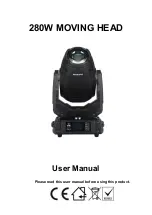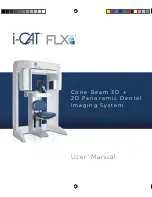
61
GB
Once the hydraulic connections have been completed, the
system must be filled.
During all the operations described below, the unit
must be disconnected from the power supply.
All valves are provided closed.
3.7.1 System water reference values
The specialised technician must detect the water reference
values of the system with the appropriate test kits, ensuring
that they comply with the limits indicated in the following
table.
Well or groundwater not coming from an aqueduct must
always be carefully analysed and conditioned with appro-
priate treatment systems. If a water softener is installed
in addition to following the manufacturer's instructions,
adjust the hardness of the outlet water not below 5°F (also
performing pH and salinity tests) and check the concentra-
tion of outlet chlorides after resin regeneration.
If you are not sure about the quality of the water or if you
have doubts about the presence of different materials that
could cause over time a progressive corrosion of the HP
exchanger or the coil of the DHW boiler, it is always good
practice to insert an inspectable intermediate exchanger
and in material suitable to resist these components. In case
of new installation, or emptying of the circuit, it is necessary
to carry out a preventive cleaning of the system.
Caution, do not introduce acids into the washing circuit.
Do not use corrosive water, containing deposits, chlorine
debris or demineralised water.
In order to ensure the proper functioning of the product,
after each cleaning operation, water replacement or glycol
addition, check that the preloading water complies with
the following table.
If the total hardness is greater than 20°F or some reference
values of the make-up water do not fall within the indica-
ted limits, contact our pre-sales service to determine the
treatments to be implemented.
System water reference values
pH
6.5 ÷ 7.8
Electrical conductivity
μS/cm
250 ÷ 800
Total hardness
°F
5 ÷ 20
Total iron
ppm
0.2
Manganese
ppm
< 0.05
Chlorides
ppm
< 250
Sulphur Ions
absent
Ammonia Ions
absent
Freezing temperature (°C)
-4
-9
-15
-23
% Inhibited Propylene Glycol
10%
20%
30%
40%
Capacity correction factor
0.996
0.991
0.983
0.974
Power absorbed correction factor
0.990
0.978
0.964
1.008
Load losses correction factor
1.003
1.010
1.020
1.033
For operation of units with different non freezing mixtures, contact
our Service Desk.
The list of service centres is available on the website www.emmeti.com.
If the ITM-200 B unit is combined with THE MIRAI SMI Heat
Pump and there is a risk that the external temperature will
fall below 0 °C and that the Heat Pump may remain without
power supply, empty the primary system or introduce anti-
freeze liquid in a percentage appropriate to the minimum
temperatures reachable.
Solutions of water and glycol used as heat transfer fluid
instead of water, cause a decreasein the performance of
the units. Add water with a maximum percentage of 40%
inhibited propylene glycol (equal to a protection up to -23
°C).
If the ITM-200 B unit is installed in a location, where the temperature may fall below 0°C, it is necessary to empty the
DHW tank and related pipes.
3.7 System filling
Summary of Contents for ECO HYDRO KIT ITM-200 B
Page 1: ...ECO HYDRO KIT ITM 200 B MANUALE INSTALLAZIONE ED USO INSTALLATION AND USE MANUAL Rev B 04 2021...
Page 14: ...IT 14 Esempio di installazione 1 Eco Hydro kit ITM 200 B 2 Pompa di calore MIRAI SMI...
Page 43: ......
Page 56: ...GB 56 Installation example 1 Eco Hydro kit ITM 200 B 2 MIRAI SMI heat pump...
Page 78: ...GB 78...
















































